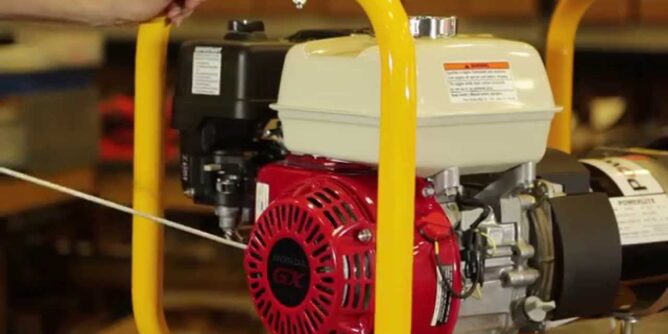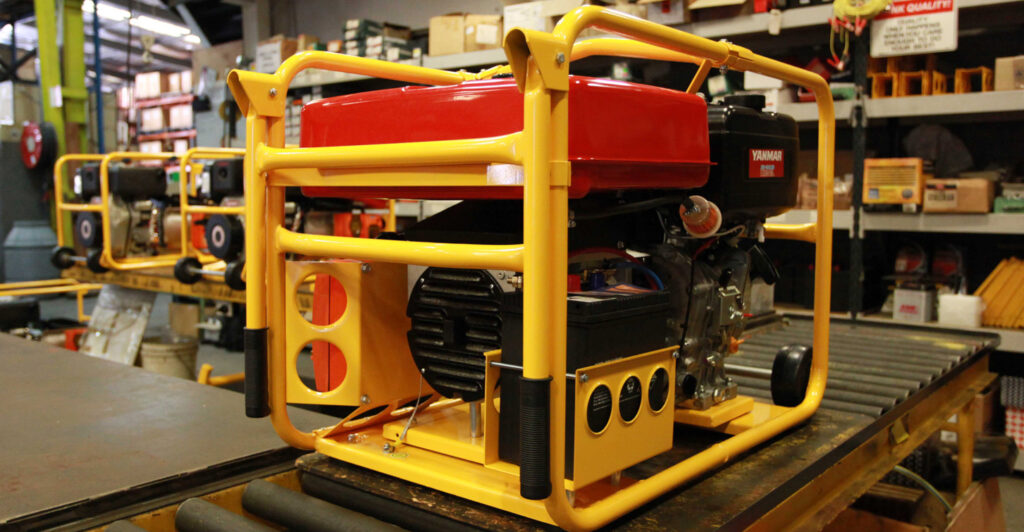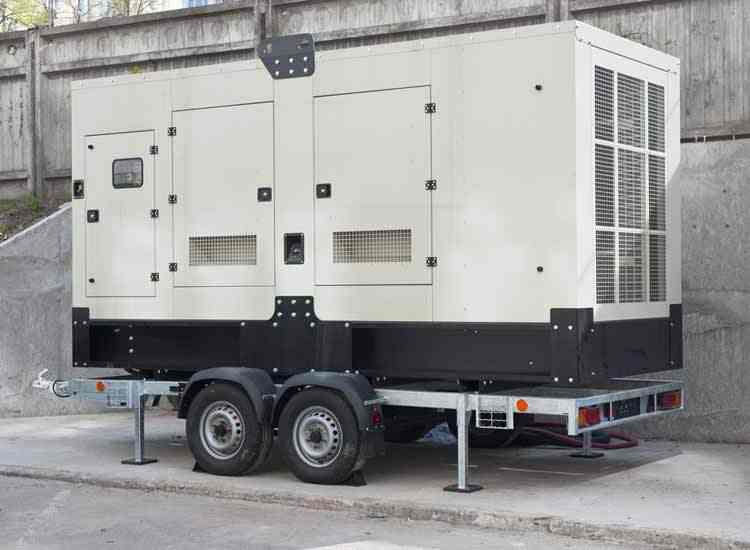
Diesel generators are a crucial component of many industries and residential settings, providing reliable backup power during outages or serving as the primary source of electricity in remote locations. In this comprehensive guide, we will delve into the mechanics, applications, benefits, and maintenance of the diesel generator.
Table of Contents
How Do Diesel Generators Work?
The diesel generators operate on the principle of internal combustion engines. The process involves four main stages: air intake, compression, combustion, and exhaust. When diesel fuel is injected into the combustion chamber, it reacts with compressed air to generate power. This power is then converted into electricity using an alternator.

Applications of Diesel Generators:
Emergency Backup Power: Diesel generators are widely used as backup power sources in commercial buildings, hospitals, data centers, and homes. They ensure uninterrupted electricity supply during grid failures, preventing disruptions to critical operations.
Remote Locations: In remote areas where grid connectivity is limited or unavailable, diesel generators serve as the primary source of power for various activities, such as construction, mining, and agricultural operations.
Industrial Use: Industries like manufacturing, telecommunications, and oil and gas rely on diesel generators to support their operations and maintain production even in the absence of a stable power grid.
Marine Applications: Diesel generators power ships and vessels, providing the energy needed for propulsion, lighting, and other onboard systems.
Benefits of Diesel Generators:
Reliability: Diesel generators are known for their reliability and durability, making them an ideal choice for critical operations that require consistent power.
Fuel Efficiency: Diesel fuel is more energy-dense than gasoline, resulting in better fuel efficiency and longer runtimes.
Longevity: Diesel engines are designed to withstand heavy loads and operate for extended periods, leading to longer lifespans compared to some other generator types.
Easy Maintenance: Diesel generators have fewer moving parts and simpler designs, making maintenance relatively straightforward.
Maintaining Diesel Generators:
Regular Inspections: Routine checks of fuel levels, oil quality, coolant levels, and battery condition are essential to ensure optimal generator performance.
Load Testing: Periodic load testing helps determine the generator’s capacity to handle varying loads and ensures it’s ready for any power demand.
Fuel Quality: Using clean and high-quality diesel fuel is crucial to prevent clogs, reduce emissions, and maintain engine efficiency.
Environmental Considerations
Diesel generators emit pollutants such as nitrogen oxides and particulate matter. However, modern diesel generators are equipped with advanced emission control technologies to mitigate their environmental impact.
Emissions and Regulations: Discuss the emissions produced by diesel generators and the evolving emissions regulations.
Advancements in Clean Diesel: Highlight technological advancements in diesel engines that reduce emissions and increase efficiency.
Alternative Fuels: Mention the exploration of biodiesel and other alternative fuels to mitigate environmental impact.
Choosing the Right Diesel Generator
Selecting the appropriate diesel generator requires careful consideration of several factors:
Power Requirements Assessment: Calculate the total power needed during an outage to determine the generator’s capacity. Consider both essential and non-essential systems.
Sizing Considerations: Generators are available in various sizes. An oversized generator can lead to fuel wastage and decreased efficiency, while an undersized one might fail to handle the load.
Noise Levels and Environmental Factors: If the generator will be installed in a residential area or noise-sensitive environment, opt for models with noise-reduction features. Also, consider emission regulations in your region.

FAQs on Diesel Generators:
Are diesel generators suitable for residential use?
Yes, diesel generators can be used in homes as backup power sources, especially in areas prone to frequent power outages.
Can a diesel generator be used continuously?
Yes, diesel generators can run continuously as long as they are properly maintained and fueled.
Are there any size limitations for diesel generators?
Diesel generators come in various sizes to cater to different power needs, from small residential units to large industrial systems.
How noisy are diesel generators?
Diesel generators can produce significant noise, but modern models are designed with noise-reduction features.
What’s the lifespan of a diesel generator?
With proper maintenance, a diesel generator can last for decades, often longer than other types of generators.
Conclusion
Diesel generators play a vital role in providing backup and primary power in various settings. Their reliability, efficiency, and longevity make them a popular choice across industries. Understanding their working principles, applications, benefits, and maintenance requirements is crucial for making informed decisions regarding their implementation. Whether you’re ensuring uninterrupted operations in a hospital or powering up a remote construction site, diesel generators are a robust and dependable energy solution.






